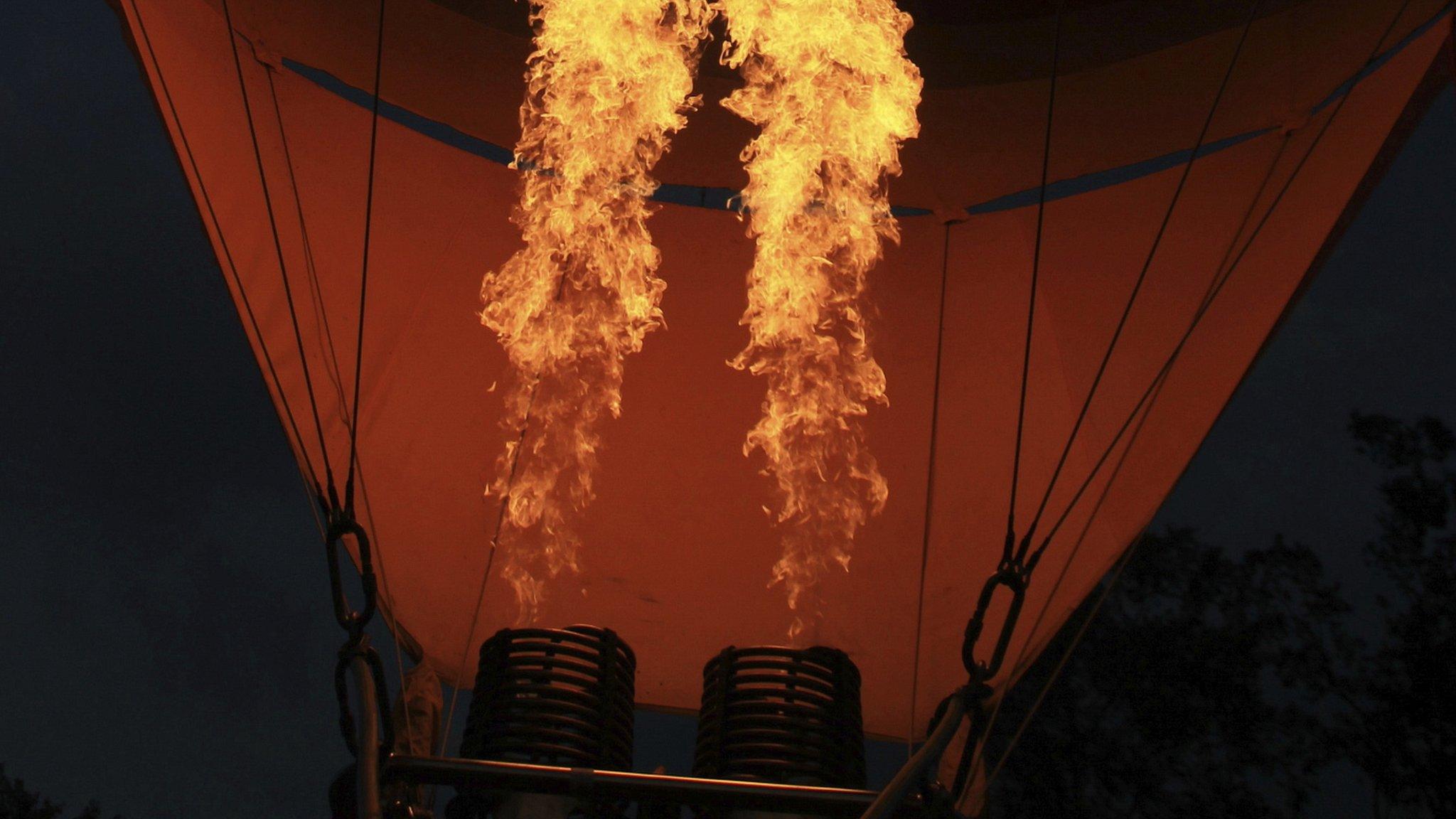UK's coal plants to be phased out within 10 years
- Published
Energy Secretary, Amber Rudd, says investment in gas will provide the UK with a more secure long-term energy supply
The UK's remaining coal-fired power stations will be shut by 2025 with their use restricted by 2023, Energy Secretary Amber Rudd has proposed.
Ms Rudd wants more gas-fired stations to be built since relying on "polluting" coal is "perverse".
Only if gas-fuelled power can fill the void created by closing coal-powered stations would coal plants be shut, she said.
Environmentalists are concerned little is being done to promote renewables.
Announcing the consultation, Ms Rudd said: "Frankly, it cannot be satisfactory for an advanced economy like the UK to be relying on polluting, carbon-intensive 50-year-old coal-fired power stations.
"Let me be clear: this is not the future.
"We need to build a new energy infrastructure, fit for the 21st century."
Former US vice president Al Gore, an active campaigner for clean energy, described the announcement as an "excellent and inspiring precedent".
If coal power plants are able to install carbon capture and storage (CCS) before 2025, they would not be closed. CCS has long been mooted as the answer to cleaning up coal plants, but very little progress has been made in developing the technology, with just one commercial scale plant currently operating in the world.
'Energy crisis'
Currently, coal provides about a quarter of the UK's electricity, but Ms Rudd said: "We are tackling a legacy of underinvestment and ageing power stations which we need to replace with alternatives that are reliable, good value for money and help to reduce emissions."
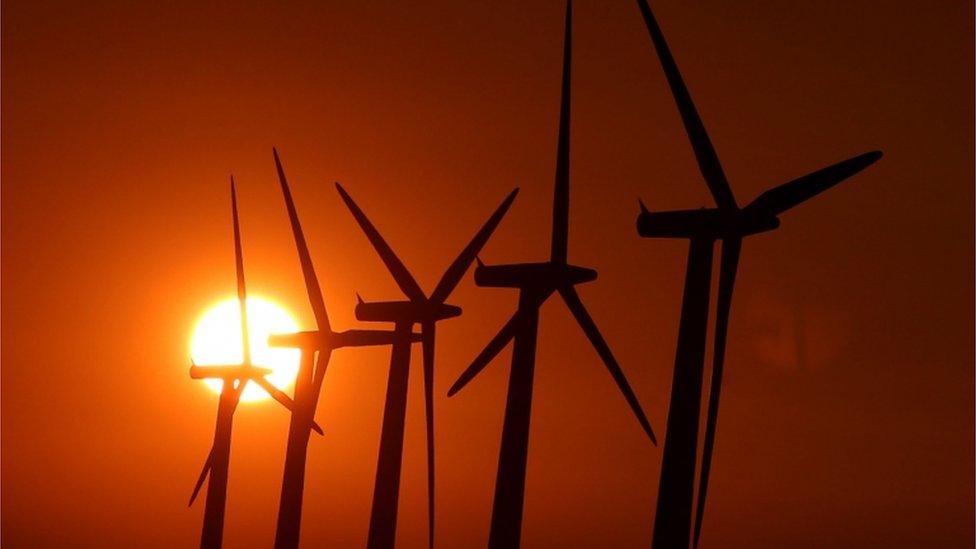
Ms Rudd also said investment in nuclear power was vital to the government's policy.
"Gas is central to our energy-secure future," she said. "So is nuclear."
She believes that plans for new nuclear power stations, including those at Wylfa in Wales, Moorside in Cumbria and Hinkley Point in Somerset, could eventually provide almost a third of the low carbon electricity the UK needs.
The speech comes amid concerns in some quarters that the UK could suffer from blackouts as a result of short supplies, brought about in large part from the closure of a number of power stations that have come to the end of their working lives.
Tony Lodge, who has published a report on the UK's energy needs for the free-market think tank Centre for Policy Studies, said Britain was on the verge of an "energy crisis" with electricity demand set to outstrip available supply in the near future.
However, National Grid and many experts have dismissed these concerns. The Grid says it has plenty of gas and enough electricity to get through the winter without any disruptions.

Analysis: John Moylan, BBC industry correspondent
Successive governments have highlighted our energy dilemma - the need to keep the lights on, while cutting greenhouse gases and ensuring energy is affordable for consumers.
Today the Energy Secretary Amber Rudd will focus on energy security and keeping prices as low as possible.
But for the world's first industrialised nation to end coal-powered generation sends a strong signal ahead of the UN Climate summit in Paris.
All the major parties had signed up to phasing out coal. The previous government's projections saw it falling to 1% by 2025.
The big question is how to ensure gas plants are built to replace it. Only one large plant is under construction today. Another, which secured a subsidy last year, is struggling to find investors.

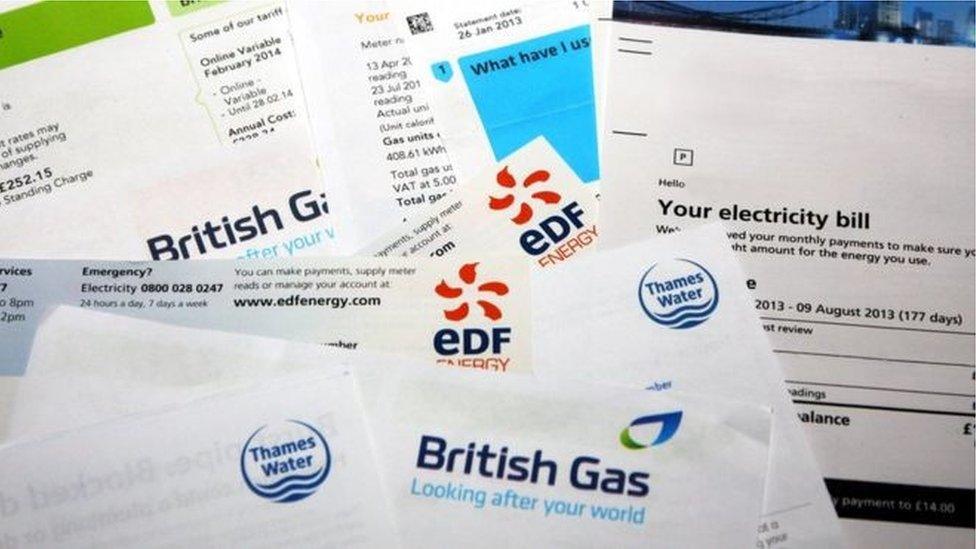
The new energy system will be "competition-focused", according to Amber Rudd
The government was criticised earlier this year for cutting renewable energy subsidies.
Ms Rudd said that such subsidies must be carefully focused on technologies that offer the best value for money, fitting into a "consumer-led, competition-focused energy system".
It has slashed solar subsidies and will cut those for onshore wind next year.
Professor Paul Ekins, an expert on resources and environmental policy at University College London, said the government had "abandoned" the cheapest forms of low carbon power - onshore wind and solar energy.
He said: "We need some gas fired stations, but in tandem with investment in renewables and nuclear. It is the investment in renewables that is being cut back to an enormous extent."
He said the government kept changing course on its energy policy and this was discouraging investment.
Ms Rudd's speech comes ahead of the UN summit on climate change in Paris in December, aimed at securing a new global climate change agreement.
'Like an alcoholic'
Environmental group Friends of the Earth welcomed the phasing out of coal, but criticised the new emphasis on gas.
"Switching from coal to gas is like an alcoholic switching from two bottles of whisky a day to two bottles of port," senior energy campaigner Simon Bullock said.
The GMB union's national secretary for energy Brian Strutton welcomed Ms Rudd's statement but added: "Government needs to get on with addressing the urgent need for nuclear power stations and gas-fired stations to supply reliable power.
"The investment will only happen when the framework is right, which it is not now."
Environmentalists say nuclear and gas power are not the cheapest form of energy in the long run. Not only are renewable energies cleaner, they say, but because there are no fuel costs - the sun and the wind are free - then ultimately these technologies offer better value for money.
The UK cannot rely on renewables alone yet, however, as they are variable, so improvements in energy storage technologies are needed.
- Published11 November 2015
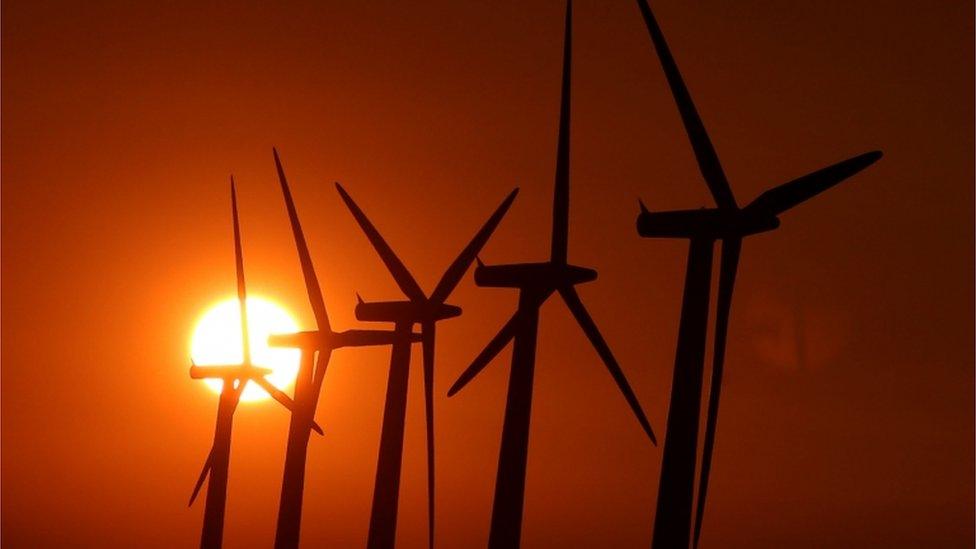
- Published10 November 2015
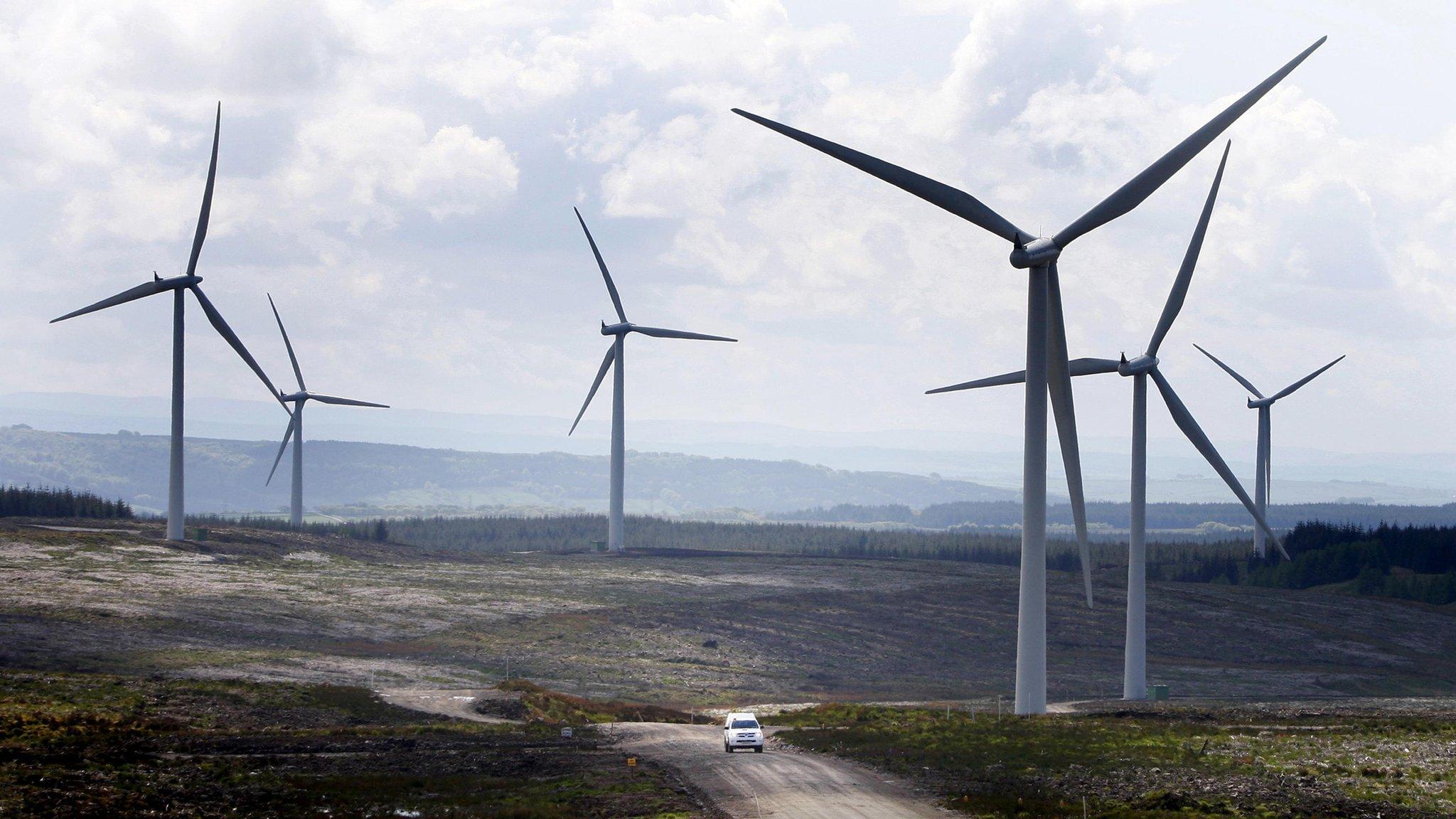
- Published9 November 2015
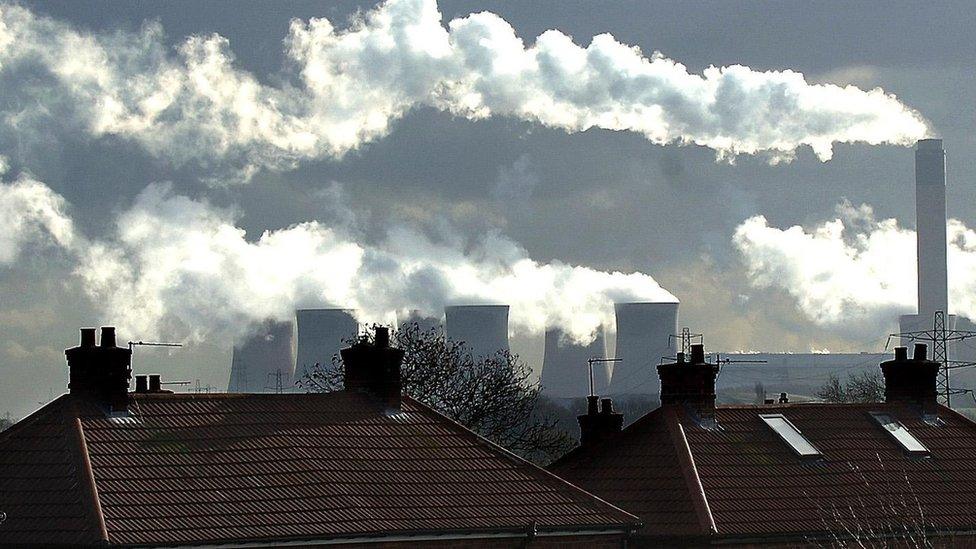
- Published22 September 2015
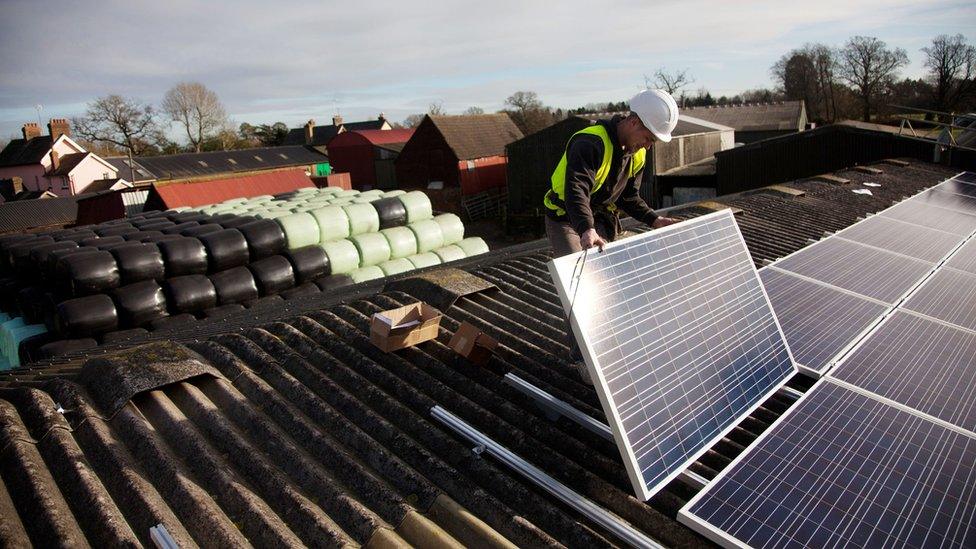
- Published9 October 2015
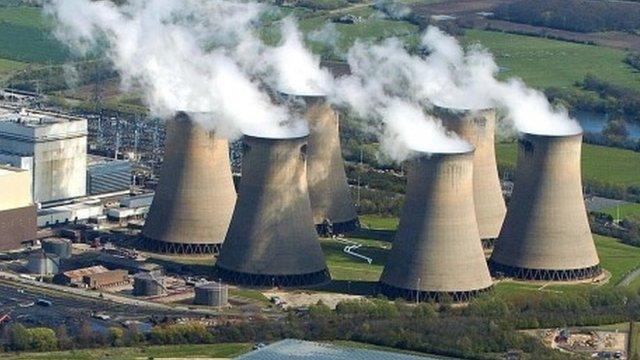
- Published9 June 2015
